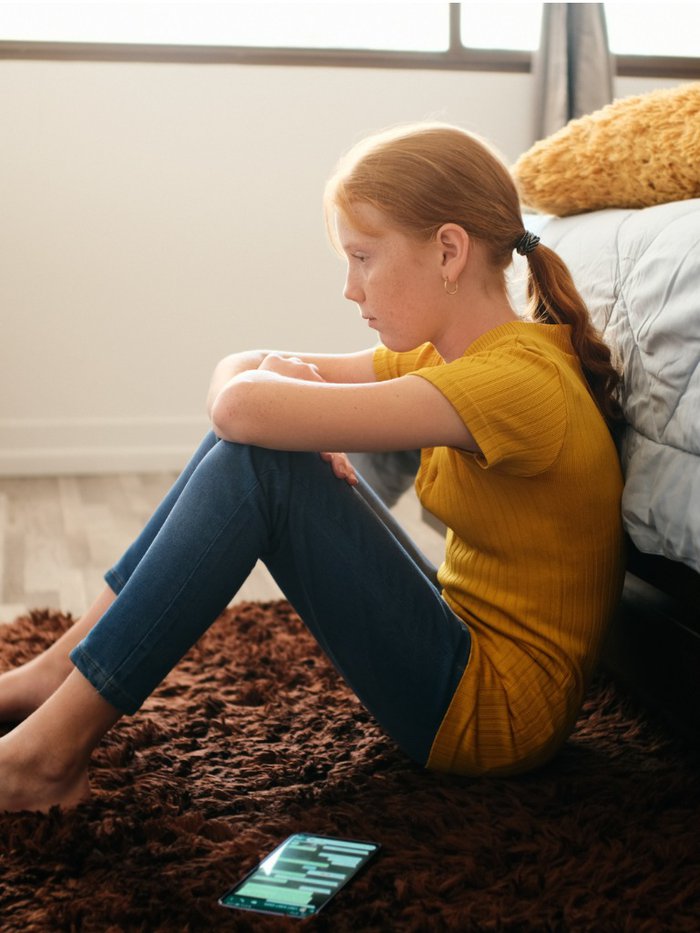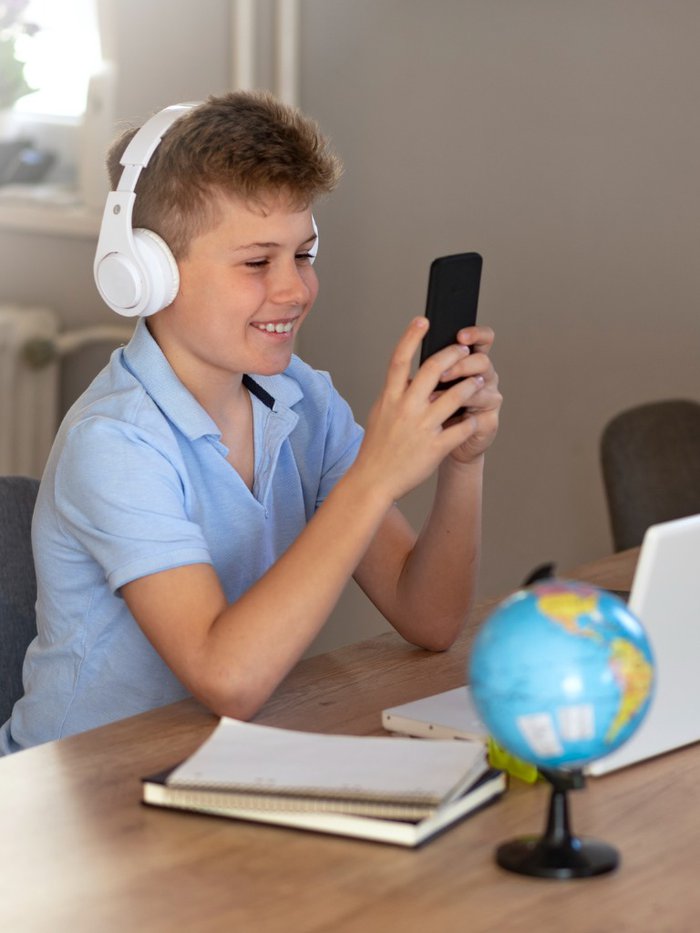Social media and mental health: the good, the bad and the ugly

Social media has become an integral part of many lives. With young people spending more and more time online, we explore the impact of social media on their mental health
Research reveals that over half of 5–15 year olds use social media. With numbers almost reaching 90% for 12–15-year-olds, it’s no surprise that young people are heavy users of social media. It allows us to foster relationships, keep up with the latest trends and share our interests.
As social media becomes more integrated into our everyday lives, it’s important to look at its impact on mental wellbeing. What does social media have to offer young people? And how does it influence them during this crucial time of social development?
Social media plays a crucial role in maintaining relationships with family and friends. Particularly during the pandemic, we’ve seen how we can use it to overcome the boundaries of distance and time. Young people can continue to socialise and feel connected with their loved ones – anytime and anywhere.
Social media is also used to make new connections. With so many online communities available, young people can meet and interact with like-minded people who share common interests, goals, and attitudes.
Social media was a lifeline for young people while in-person socialising wasn't possible, however it has also led to comparison and worries which have negatively impacted mental health
Megan Wright (Parenting Coach at Parent Talk)
Bullying can do significant harm to the emotional wellbeing of a young person, with lasting effects carried through to adulthood.

In England and Wales, 1 in 5 children aged 10-15 have reported experiencing cyberbullying.
Cyberbullying predates the existence of social media. But as social media allows us to connect at any time, it means we have access to others more than ever before. Compared to traditional bullying, cyberbullying can take place around the clock. These public platforms can act as rapid vehicles for circulating harmful posts or messages.
The anonymity social media presents may also allow people to create malicious content without fear of getting caught or punished. However, many social media sites have published clear messaging on bullying, and online abuse is a criminal offence.
Young people are trying to find where they fit in the world. They're figuring out who they are and how they relate to their friends and peers. They can use social media as an outlet for creativity and self-expression.
Online, users can create and personalise their profiles to authentically reflect who they are. The freedom these platforms bring allows a diverse range of people to enjoy social media and use it how they want. It also gives space to those who are part of marginalised communities (such as BAME or LGBT+ groups) to make their voices heard.

For many, [social media is] important for… giving them things, groups etc, they can identify with and develop an affinity with. Influencing their sense of identity in a good and possibly a negative way
Jo Turns (Parenting Coach at Parent Talk)
Most of us are guilty of comparing ourselves with others and wanting to fit in. But for young people establishing their identities in the world, looking at their own lives and constantly feeling that 'it’s not enough' can be particularly damaging.
Our feeds online are filled with a constant stream of other lives and opinions. Overly curated (sometimes edited and manipulated) images can harm self-esteem and self-image. It presents an ‘idealised' body image or lifestyle. When our own does not look the same, it can be crushing.
So, while social media allows us to freely express ourselves, online users are presented with an unusual tension. One between being completely authentic or presenting yourself as a version that doesn’t exist – but you feel fits in online.
How to support a child or young person with low self-esteem

Through social media, young people can keep up to date with and share the latest news, topics they are interested in and develop skills – beyond what's taught in school. Where it would not otherwise be possible, they can follow and interact with the experts and leaders.
Social media can help to broaden perspectives and expose users to different viewpoints and ideas – sometimes offering opportunities to engage in dialogue with others. But users need to be mindful of what they consume and who they connect with online; they must be conscious of the language used when talking about certain topics.
Social media can be demanding, and there’s so much content to consume. In 2021, TikTok was the most used social media platform, with UK children spending an average of 97 minutes per day on the app. Slightly less time was spent on Snapchat and Instagram, which saw daily use at 82 and 34 minutes, respectively.
Social media sites are designed to keep users coming back. Many utilise infinite scrolling, where more and more content appears as you scroll. This means that you never quite reach the bottom of your feed and never get that cue to stop.
When we have positive social interactions, our brain releases a chemical messenger – dopamine. This release makes us feel good. Social media sites exploit this, by sending us notifications for every like or share. We subconsciously register this as a reward, which drives our urge to check social media.
Spending more time on social media than desired can lead to a lack of sleep or leaving no time to focus on anything else, such as schoolwork or hobbies.

Teens who use social media for over 5 hours a day are 70% more likely to fall asleep late on school nights than users who spend 1-3 hours online.
During the lockdowns, young people spent more time than usual on social media, and now parents are struggling to get them off it. Parents are finding young people are spending more time alone in their rooms on social media, often until the early hours. It's impacting on schooling, family interactions and socialising out and about
Jo Miskin (Parent Talk Service Manager)
There is little doubt that social media platforms will continue to grow. Social media has changed the way we live and interact with each other. But social media is a tool, not something that should be relied upon.
There’s no ‘one size fits all’ way to use social media. Instead, young people should be empowered to utilise these platforms positively. They should take time to decide who they follow, how long to spend on it and what to post. How it's used will determine its impact and influence on mental health.
There is a place for social media in our children’s lives. The important thing is for our children to have the skills to question what they think they see, stay positive, have downtime
Sue Rogers (Service Development Manager – Mental Health)
Stay to up to date with all of our our latest news, stories, and campaigns




